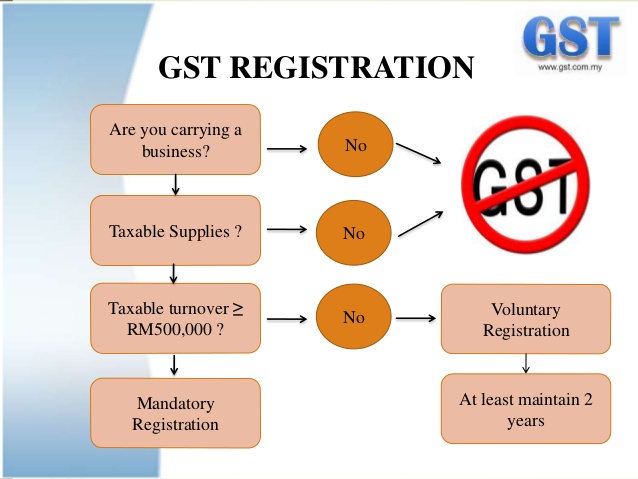Leading Tips for a Smooth Singapore GST Registration Experience
Leading Tips for a Smooth Singapore GST Registration Experience
Blog Article
The Ultimate Overview to Streamlining the GST Registration Refine and Requirements for Local Business Owners

Understanding GST Fundamentals
To grasp the fundamentals of the Goods and Services Tax (GST) system, local business owners should first recognize its underlying principles and effects. GST is a value-added tax levied on most goods and solutions for residential usage. It intends to simplify the taxes procedure by changing numerous indirect taxes enforced by the state and central federal governments. Under the GST regimen, companies are required to collect and register tax obligation in behalf of the federal government, ensuring transparency and compliance.
One of the crucial principles of GST is input tax credit, which enables services to declare credit scores for tax obligations paid on their purchases. Recognizing these fundamental principles is important for small service proprietors to browse the intricacies of the GST system and make certain compliance with the law.
Qualification Criteria for Registration
Having actually established a foundational understanding of GST concepts, small company owners need to now fulfill details qualification criteria to continue with the enrollment process. In India, entities participated in the supply of items or solutions with an annual aggregate turnover going beyond Rs. 40 lakhs (Rs. 10 lakhs for special classification states) are needed to sign up for GST. Additionally, specific companies such as those associated with inter-state supply of goods, casual taxable persons, and those needed to pay tax obligation under the reverse charge system need to register for GST irrespective of their turn over. In addition, organizations that were signed up under the previous tax regimen (BARREL, service tax, and so on) are additionally mandated to register under GST. Nonetheless, farming companies that just provide produce out of primary production are exempt from GST enrollment. It is crucial for company owner to very carefully examine their qualification based upon these requirements to guarantee conformity with the legislation and stay clear of any type of fines for non-compliance.
Records Needed for GST Registration

Simplified Registration Refine Steps
Complying with the collection and confirmation of the requisite records, the registration process for GST can be navigated through a collection of streamlined actions developed to assist in efficient conformity for little organization proprietors. The very first step includes seeing the GST portal and picking the 'New Enrollment' alternative. Consequently, the candidate must fill out Part A of the GST REG-01 form with information such as frying pan, mobile number, and e-mail address to get an OTP for verification. As soon as the OTP is obtained and gone into, a Short-lived Referral Number (TRN) is created for additional process. The following step requires submitting Component B of the type with necessary business details, publishing sustaining records, and finishing the verification procedure making use of DSC or EVC. Upon effective verification, an Application Referral Number (ARN) is provided, indicating the conclusion of the GST enrollment process. By adhering Find Out More to these streamlined steps, small company owners can successfully register for GST and guarantee Related Site conformity with tax obligation policies.
Tips for Ensuring Conformity
To maintain governing adherence and functional integrity, persistent oversight and aggressive steps are crucial in guaranteeing conformity with GST requirements for tiny service owners. Little organization owners need to stay updated with GST regulations, submitting due dates, and any kind of modifications in tax rates to prevent penalties and maintain a good standing with tax obligation authorities. Attending GST awareness workshops or training programs can improve understanding and conformity with GST guidelines, eventually profiting the company in the lengthy run.
Verdict
In verdict, little company proprietors must understand the fundamentals of GST, meet the eligibility requirements, gather needed records, and follow the streamlined enrollment process steps to make certain compliance. By simplifying the GST registration procedure and needs, small company owners can avoid charges and operate their organizations smoothly within the legal structure - Singapore GST Registration. It is essential for little service proprietors to remain certified and educated with GST regulations to maintain an effective business operation
Small business owners looking for GST registration should ensure they collect and submit the required papers to finish the enrollment procedure successfully. The documents required for GST enrollment commonly include evidence of business enrollment or consolidation, FRYING PAN (Long-term Account Number) card of the company entity, identity and address proof of the promoters/partners/directors, photos, address evidence of the area of company, bank account statements or canceled cheques, and authorization kinds. Going to GST understanding workshops or training programs can boost understanding and compliance with GST guidelines, eventually benefiting the organization in the long run.
By simplifying the GST registration process and demands, tiny organization owners can stay clear of penalties and run their services smoothly within the legal structure. It is vital for small service owners to remain educated and certified with GST policies to maintain a successful organization operation.
Report this page